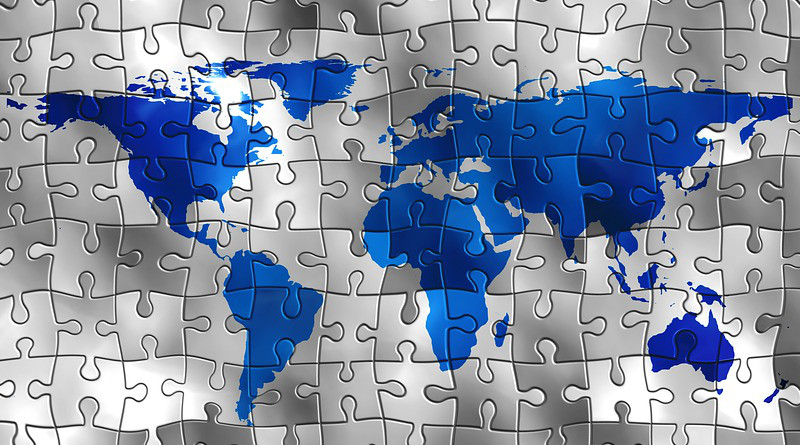Moving From Hyper-Globalization – OpEd
With the onset of the COVID-19 pandemic in 2020, there was an impression that globalization, as such, had ended and that deglobalization had taken its place. And this has its own explanation.
It is an undeniable that national governments, as well as international organizations (primarily WHO), were not prepared for the start of the COVID-19 pandemic. This, first of all, was manifested in the fact that they were perplexed by the unexpected appearance of the coronavirus and its rapid spread. For this reason, especially at the initial stage of the pandemic, both national governments and international organizations were unable to quickly respond to the main challenges of the pandemic. As a result, this provoked the formation of an opinion about the end of globalization, as such. In this context, it is important to remember that even before the start of the COVID-19 pandemic, moves towards deglobalization were made by US President Donald Trump, not to mention Brexit when the UK left the EU.
The impression of the beginning of the end of globalization was strengthened as a result of the lockdown of the functioning of a significant number of companies in order to limit the spread of the coronavirus. The lockdown, for its part, has caused disruptions in global supply chains. As a consequence, the impression of deglobalization has been further strengthened. In particular, discussion began on replacing globalization with nationalism and isolationism (https://www.project-syndicate.org/commentary/global-cooperation-can-prevent-next-pandemic-by-kemal-dervis-and-sebasti-n-strauss-2020-03).
The impossibility of ending the process of globalization is most clearly evidenced by the global nature of illegal economic activity (for example, the drug business or the illegal arms trade). Moreover, despite the active actions of national governments and international organizations (for example, Interpol) against these illegal economic activities, in fact, it staunchly retains the character of globalization.
It should be recognized that the level of political globalization practically lags behind the level of economic globalization but this does not mean at all that the process of globalization is reversible (https://www.project-syndicate.org/commentary/globalization-and-multilateral-cooperation-not-ending-by-grzegorz-w-kolodko-2022-09).
The global nature of the pandemic naturally precludes overcoming the pandemic under conditions of isolationism. On the contrary, overcoming the pandemic is possible on the basis of coordinated decisions of national governments and international organizations (https://www.project-syndicate.org/commentary/universal-free-covid19-vaccine-by-mariana-mazzucato-and-els-torreele-2020-04?utm_source=Project%20Syndicate%20Newsletter&utm_campaign=64d8372856-sunday_newsletter_03_05_2020&utm_medium=email&utm_term=0_73bad5b7d8-64d8372856-93567601&mc_cid=64d8372856&mc_eid=e9fb6cbcc0).
Shortly after the start of the COVID-19 pandemic, it was clearly justified that the development of the world economy in the post-pandemic period based on the deglobalization of isolationism was impossible in principle (https://www.project-syndicate.org/commentary/covid19-crisis-revive-multilateralism-open-trade-by-victor-k-fung-2020-04?utm_source=Project%20Syndicate%20Newsletter&utm_campaign=871db40e9f-sunday_newsletter_26_04_2020&utm_medium=email&utm_term=0_73bad5b7d8-871db40e9f-93567601&mc_cid=871db40e9f&mc_eid=e9fb6cbcc0).
Thus, we believe that the unpreparedness and confusion of national governments and international organizations for the onset of a pandemic, as well as disruptions in global supply chains, indicated a temporary fault in the globalization process; i.e., pseudo-deglobalization occurred, not real deglobalization (https://www.eurasiareview.com/18102021-on-pseudo-de-globalization-silk-road-of-global-value-chains-and-role-of-georgia-oped/).
At the same time, it should be recognized that with the onset of the pandemic, the globalization that was well known to everyone has come to an end (https://www.project-syndicate.org/commentary/future-of-globalization-national-priorities-international-threats-by-jean-pisani-ferry-2021-06).
Logically, the question arises as to the kind of globalization we talking about. In particular, what kind of globalization do we know well?
According to Professor Dani Rodrik of Harvard University, pre-COVID-19 pandemic globalization can be considered as hyper-globalization, “under which countries must compete to offer global corporations ever-sweeter deals” (https://www.project-syndicate.org/commentary/g7-corporate-tax-agreement-end-of-hyper-globalization-by-dani-rodrik-2021-06).
As I wrote earlier, during the COVID-19 pandemic turbulent globalization took shape and this globalization grew into confrontational globalization under the conditions of Russia’s war in Ukraine and economic sanctions imposed by the West on Russia (https://www.eurasiareview.com/23052022-pandemic-war-and-economic-sanctions-from-turbulent-to-confrontational-globalization-oped/).
Naturally, the question arises that if hyper-globalization has grown into a turbulent one, and it has turned into a confrontational one, then what will happen next? In other words, what should globalization be like after confrontational globalization, when Russia’s war in Ukraine ends and the COVID-19 pandemic is also just a matter of a history?
Even during the COVID-19 pandemic, discussions began on the problem of understanding the so-called new “wave” of globalization which should be based on a qualitative renewal of the globalization process (https://www.project-syndicate.org/commentary/covid19-deglobalization-two-priorities-by-mohamed-a-el-erian-2020-05?utm_source=Project%20Syndicate%20Newsletter&utm_campaign=3ce69c95d3-sunday_newsletter_17_05_2020&utm_medium=email&utm_term=0_73bad5b7d8-3ce69c95d3-93567601&mc_cid=3ce69c95d3&mc_eid=e9fb6cbcc0).
Again, following Dani Rodrik, the new wave of globalization can be conditionally called “better globalization” (https://www.project-syndicate.org/commentary/after-hyperglobalization-national-interests-open-economy-by-dani-rodrik-2022-05). Obviously, this globalization must be “better” than all the previous types of globalization (i.e., hyper-globalization and even more so turbulent globalization and confrontational globalization). Therefore, it is necessary to clarify the content of the term “better globalization.”
As rightly remarked by Joseph Stiglitz, the Nobel Prize winner in economics, “of course, the problem is not just globalization. Our entire market economy has shown a lack of resilience” (https://www.project-syndicate.org/commentary/deglobalization-and-its-discontents-by-joseph-e-stiglitz-2022-05).
In the context of the COVID-19 pandemic, as well as during the Russian war in Ukraine and economic sanctions against Russia, the problem of economic resilience has manifested itself mostly in the areas of energy security (https://www.unescap.org/sites/default/d8files/event-documents/ESCAP_77_17_E.pdf) and food security (https://www.project-syndicate.org/commentary/four-ways-to-boost-food-security-during-covid19-pandemic-by-tony-blair-and-agnes-kalibata-2020-05?utm_source=Project%20Syndicate%20Newsletter&utm_campaign=2ad6876daf-sunday_newsletter_10_05_2020&utm_medium=email&utm_term=0_73bad5b7d8-2ad6876daf-93567601&mc_cid=2ad6876daf&mc_eid=e9fb6cbcc0). And this is not at all surprising if we take into account the fact that in addition to the Russian war in Ukraine, there are two global confrontations which are called the “Oil War” (https://www.eurasiareview.com/20052022-the-oil-war-facing-eu-embargo-russia-targeted-ukraines-supplies-analysis/) and the “Food War” (https://www.theatlantic.com/ideas/archive/2022/03/rising-food-prices-ukraine-russia-war/626967/).
Consequently, one of the defining components of “better globalization” is the combination of the principles of globalization with the economic security of individual countries, regions and the whole world. In other words, in my opinion, “better globalization” will be globalization with economic security which will replace confrontational globalization and whose study should become an independent subject.

